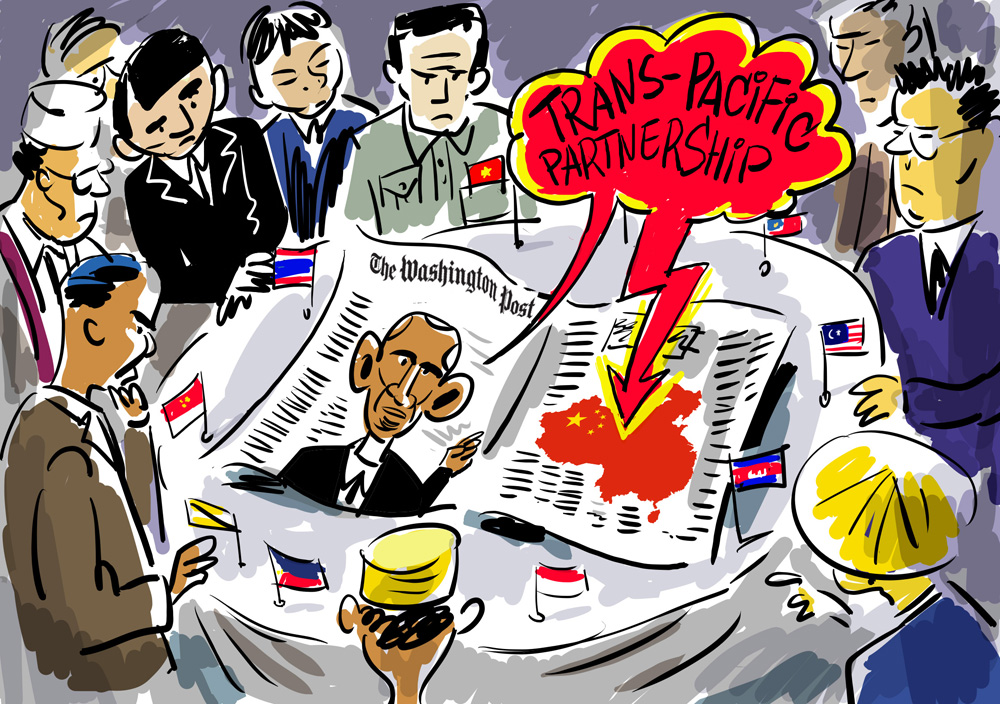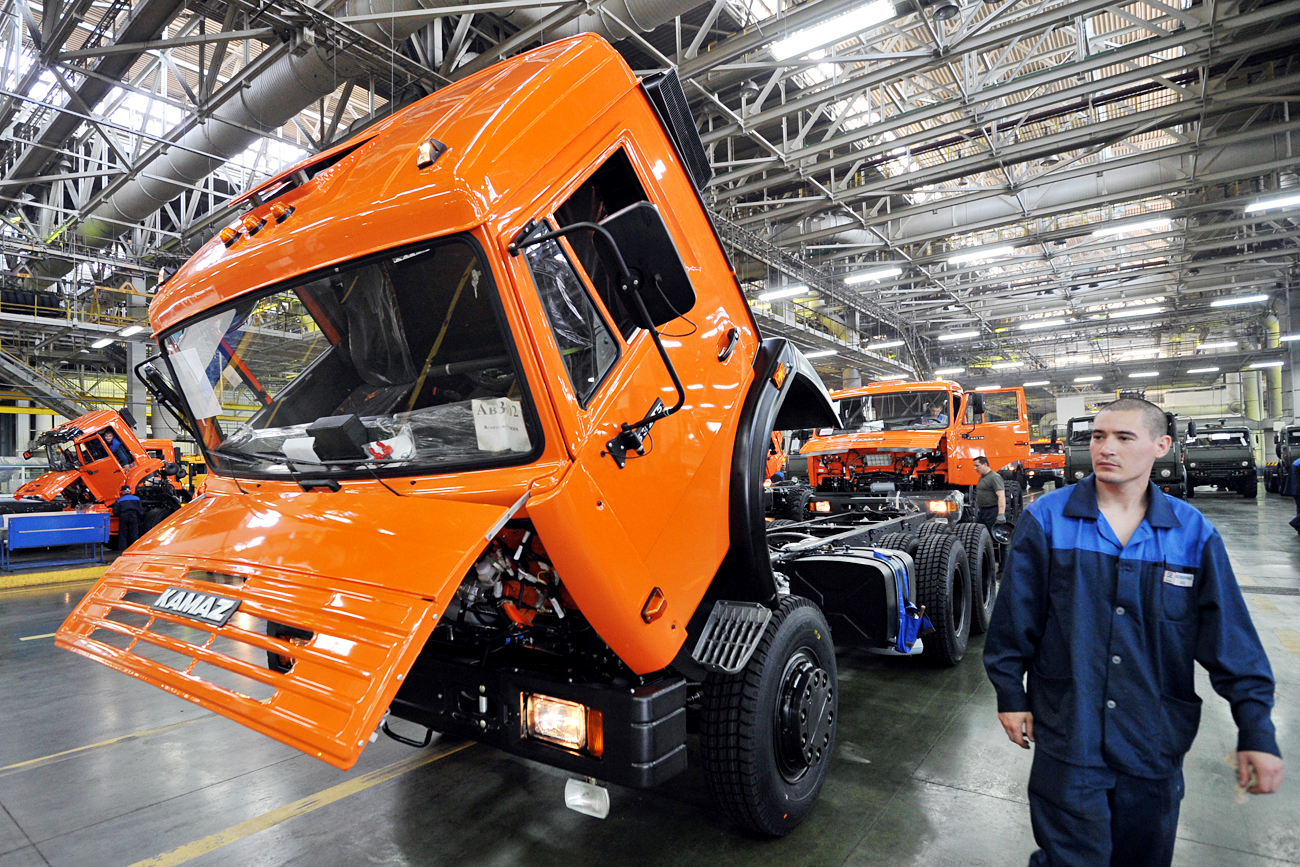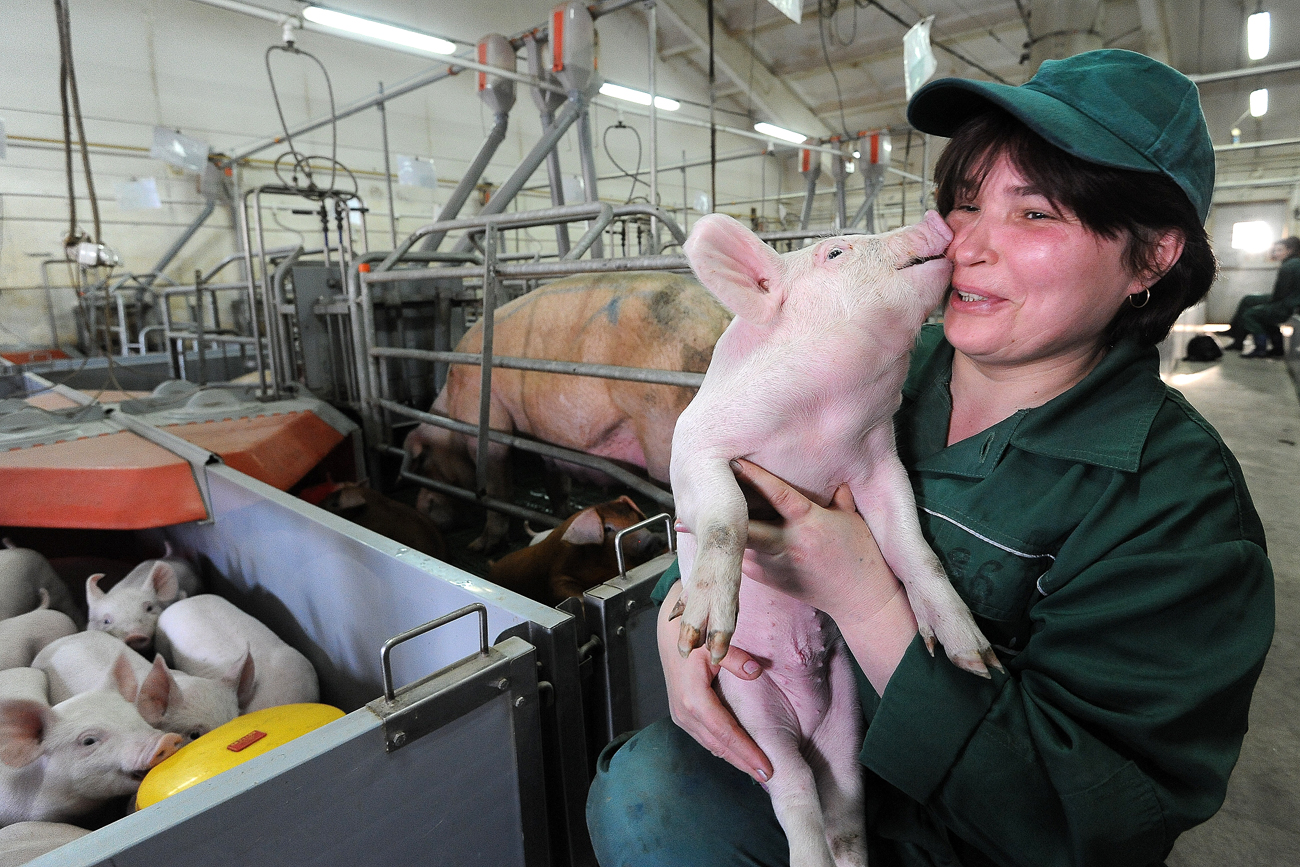TPP failure: Can Vietnam become Russia’s window to Asia?

Russian truck producer Kamaz is ready to use the EAEU-Vietnam FTA to enter Asian markets.
kamazmaster.ruWhen U.S. President Donald Trump recently fulfilled his pre-election campaign promise by signing an order to withdraw the country from the Trans-Pacific Partnership (TPP), some Russian experts saw it as a chance for Russia to speed up its economic integration with Asia. But others, who analyzed the potential impact of the TPP on Russia, told RBTH, that the current state of Russian manufacturing would not allow the country to benefit from this situation.
‘Something big’
“It's time for Russia to think over a complex economic package to deal with Vietnam,” a well-connected Dmitry Yevstafiev from the Moscow-based Higher School of Economics (HSE) wrote on his Facebook wall.
“This should be something really big,” Yevstafiev wrote, adding that the package should be focused on business and investment deals and be delivered to Vietnam as soon as possible, while ‘everybody is obsessed with Trump.’”
However, experts questioned by RBTH said, that this sounds unrealistic, because the TPP would not have had a long-term impact on Russia’s trade with Asian countries.
Russia mainly exports energy products to countries that would have been a part of the TPP. The agreement, which the U.S. is backing out of, was meant to mainly deal with complex trade issues, services and intellectual property.
In a recent article, Alexander Gabuev, director of the Russia in the Asian-Pacific Region program at the Carnegie Moscow Center quoted a report by the Russian Presidential Academy of National Economy and Public Administration (RANEPA), which says that the Russian economy would lose only around $65.6 million in the long run if the TPP were launched.
However, failure to launch the partnership would give no additional push to Russia's efforts to get to a piece of the Asian pie.
Competitiveness of Russian products
Vietnamese-speaking Anton Tsvetov, who is from the high-profile Center for Strategic Research think tank (which is involved in drawing economic growth strategy for the Putin administration), said there has historically been much talk about Vietnam becoming Russia's 'hub', 'window' or 'bridge' to Southeast Asia.
However, he told RBTH that “there is still no clear understanding of how exactly this is supposed to happen.”
Andrei Tochin from the Russian Association of Managers told RBTH that Vietnam is “a very flexible country in terms of trade [...]. They are pragmatic and have the ability to choose products from around the world.”
Tochin, who was a key negotiator during the EAEU-Vietnam free trade agreement (FTA) talks, added, “Russia should stop thinking about ‘packaging economic proposals,’ because the problem is not with entering foreign markets. The problem is the lack of competitiveness of Russian goods, which is an internal problem.”
According to Tochin, these efforts “to make a comprehensive proposal” could be risky for the country's image.
“If Vietnam would accept this potential proposal and would guide the domestic demand for Russian goods, but Russian companies fail to provide world-class levels of support and after-sales service, Russia could lose the market for a long time, and lose face.”
Replicate the 1970s East Asia strategy
What Russia should focus on is to build “a system supporting competitive businesses that can occupy a niche in a market,” Tochin said.
According to him, even well known Russian truck producer Kamaz, which is ready to use the EAEU-Vietnam FTA to enter Asian markets, has issues with after-sales service.
“This is one of the reasons Kamaz has practically left many of its markets in the former Soviet Union,” Tochin added.
Tochin said this approach was tested by East Asian countries such as China, Japan, South Korea and Taiwan in the 1960-70s and proved to be effective.
In his book titled ‘How Asia Works,’ Joe Studwell describes this industrial production policy’s core essence as “export discipline.”
According to Studwell, Asian countries had a differentiated approach to subsidizing domestic producers. They only supported manufacturers that successfully exported goods. This led to increasing product competitiveness in the global market.
Food products and UAZ
Tochin said, the changes needed in raising Russia's internal competitiveness will take time and they are not directly linked to Russia's policies in Asia.
In the current state of affairs, there are some industries that do have potential in Vietnam, such as niche segments of the auto industry and civil shipbuilding, he said, adding that Russia still has a number of advanced technologies, which may be used to create some sort of joint shipbuilding yards in Vietnam.
“Russian shipbuilding yards are located in cold places that do not have year-round sea access. And Vietnam may be interested in new small vessels for coastal cabotage, because the country has a long coastline and poor road connectivity,” Tochin said.
Vietnam’s road problems may work as an advantage for Russia’s legendary sports utility vehicle manufacturer UAZ.
If using any of Russia Beyond's content, partly or in full, always provide an active hyperlink to the original material.
Subscribe
to our newsletter!
Get the week's best stories straight to your inbox


